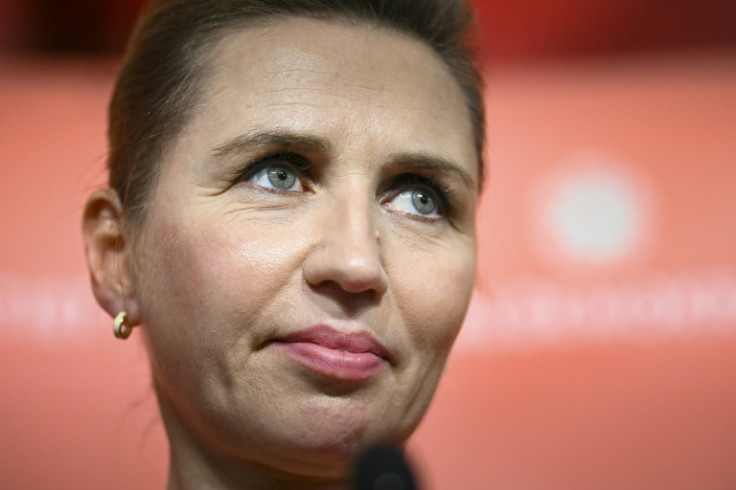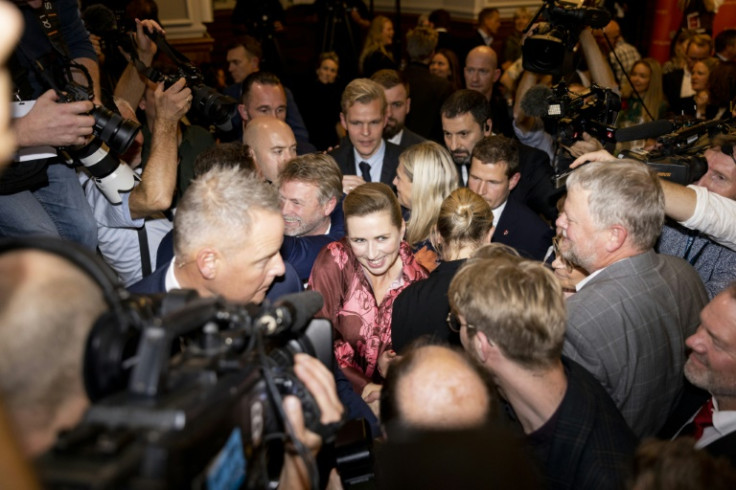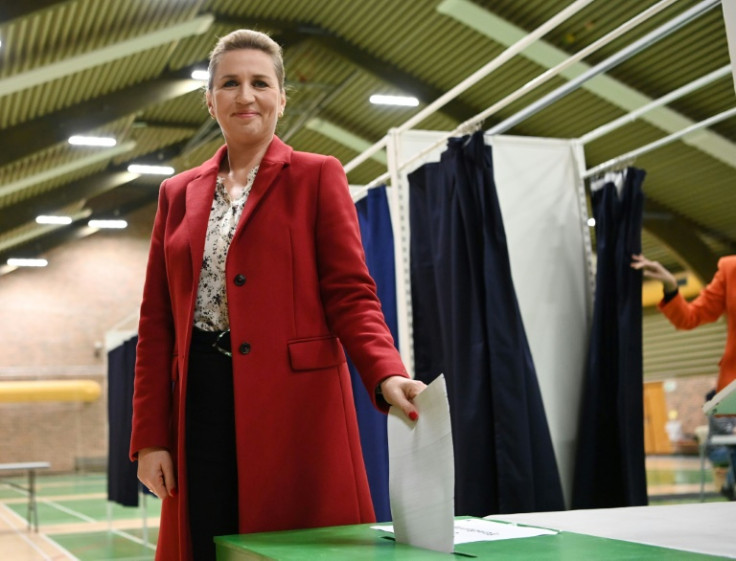Mette Frederiksen, The Face Of The Anti-immigration Left In Denmark

Prime Minister Mette Frederiksen, poised to form a new government after winning Denmark's election this week, is a social-media loving leader who has overseen her Social Democrats' monumental shift to a "zero refugee" policy.
The 44-year-old, a fan of canned mackerel and Instagram, became the country's youngest prime minister in 2019 -- a post she looks set to keep after her left-wing bloc secured a razor-thin majority in Tuesday's legislative vote.
Frederiksen has been a source of inspiration for the hit political drama series Borgen, the show's creators have said, with inevitable comparisons drawn to both the show's main character Birgitte Nyborg and the fourth season prime minister Signe Kragh.
Like Nyborg, she is a mother-of-two with a reputation for making tough decisions -- while Frederiksen's age, party affiliation and abundant social media use are all reflected in Kragh.
The daughter of a typographer and a pre-school teacher, both longstanding members of the Social Democrats, Frederiksen was born in the working class northwest of Denmark.
She entered politics at an early age. In her early teens, she paid a membership fee to support the anti-apartheid ANC in South Africa.
Like many Scandinavian politicians, she rose up through the ranks of the youth league of her party, which she joined at 15, and entered parliament at the age of 24.
Described as a "fourth generation Social Democrat", she enjoys broad support among Danes, with pre-election polls showing that 58 percent considered her the best candidate for the post of prime minister.
She has embraced social media in her politics, regularly taking to Instagram and Facebook to get her message out, and posting photos of herself as an average person enjoying pate or mackerel sandwiches -- both modest staples of the Danish diet.
The opposition has at times mocked what they see as a member of the political elite playing people's champion.
They are quick to point out that her portrayal of her simple life contrasts sharply with becoming a cabinet minister at the age of 33, and heir apparent of the Social Democrats, which she took over in 2015.
"Can you love mackerel in a can of tomato sauce and great literature at the same time? Can you like handball and go to the Royal Danish Theatre?" she said ahead of this year's campaign.
"I don't know about you, but I can," Frederiksen declared.
Before succeeding the country's first female prime minister Helle Thorning-Schmidt as the head of Denmark's largest party, Frederiksen served as employment minister and justice minister.
She went on to become prime minister after the 2019 election, and has since led an all-Social Democrat minority government.
Now she hopes to form a coalition government across the traditional left-right divide, which could reduce her dependence on her allies on the fringes.
While her overall management of the country during the pandemic was praised, she has faced a barrage of criticism for her handling of the "mink affair".
Faced with a worrying outbreak of a variant of the novel coronavirus in minks -- with Denmark previously the world's largest exporter of their furs -- the centre-left leader ordered the culling of more than 15 million animals in November 2020.
Shortly after, but with the cull already under way, it was established that the government had no legal basis for imposing the cull on farmers, dealing a heavy blow to the prime minister.
In July 2022, a commission appointed to determine blame for the affair reprimanded Frederiksen but without any other consequence, known as "a nose" in Danish politics.
The affair ended up hurting her popularity.
A small party propping up her minority government threatened to topple it unless she called elections to regain voters' confidence.
In the early 2000s, Frederiksen had denounced Denmark's immigration policy as one of the "toughest in Europe".
But, like most of the country's political establishment, she has since changed her tune.
Advocating a "zero refugee" policy, her government has pursued a controversial project to relocate asylum seekers to Rwanda while their applications are processed.
The country has also revoked residence permits for Syrians hailing from regions it considers safe.
Despite criticism from the UN and Brussels, Frederiksen has remained steadfast, earning her voters' favour.
With 27.5 percent of the votes on Tuesday, her party achieved its best results in over two decades, despite an extremely fragmented political landscape.


© Copyright AFP 2024. All rights reserved.





















